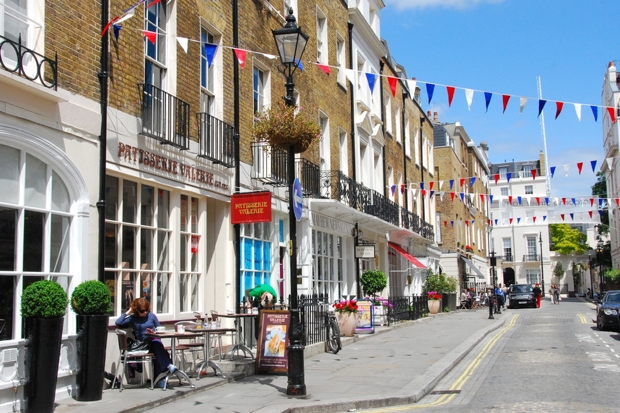Russia does much worse than suppressing dissident opinion and manufacturing fake news. Putin has aided and abetted the vast crimes against humanity in Syria. The terror sent refugees flooding into the EU, and their presence helped produce Brexit and the rise of a pan-European far right: a double victory for the Kremlin, when you look at how ‘patriotic’ parties put Russia’s interests before their countries’ interests from France to the Balkans.
Sanctions and the vast corruption Putin organises and profits from has produced vast poverty. It’s to be expected but should not be forgotten. Also worth recalling are the murders of opponents, the harassment of opposition parties, the anti-gay laws, and the endorsement of wife beating. All that and the invasion of Ukraine too.
But for the record, and as the record is fabricated in Russia, we have to write it down elsewhere, here is how free speech stands in Russia today.
Once there was space for criticism of the kleptocrats in niche publications and online. As long as opponents did not reach a mass audience, Putin left them alone. But the street protests in Moscow in 2011 had two consequences. Putin followed the old dictatorial policy of distracting the populace with foreign wars, and sent Russian troops into Syria and Ukraine. As a result, the Paris-based Reporters without Borders press freedom index ranked Russia 152nd out of 180 countries in 2014.
You can see why. The state controls TV either directly or through compliant media organisations. Spies monitor the internet. Earlier this week a man who broke into the station’s studios beat Tatyana Felgenhauer, deputy editor of the Ekho Moskvy radio. Doctors put her into an induced coma. What might be the motive? Well, Russian state TV denounced the station as an agent of a foreign power, which took funding from US-affiliated NGOs to undermine Russia by ‘trading in informational weapons’. Specifically, the regime’s propagandists accused Felgenhauer of supporting Alexei Navalny, the opposition leader who is attempting to run against Vladimir Putin in next year’s presidential election, despite being barred.
Russia is in a ‘fight between the television and the fridge,’ as Moscow intellectuals now say. The propagandists blare out stories of Russia’s renewed imperial greatness hoping that in this year, the 100th anniversary of the Russian Revolution no less, the masses won’t notice that the fridge is bare.
In these circumstances, it is grotesque to hear Afshin Rattansi, the public face of Russia Today (RT) in London, say that attacks on the propaganda network are an attack on free speech.
https://www.youtube.com/watch?v=V5PTKxPAUiU
As well as debasing the language of freedom by pimping it out for his paymasters, he invites on every fanatic in Britain to spread conspiracy theories. They come partly because of the money – RT’s production company offers £500 appearance fees, about ten times the going rate at the BBC. But they come too because RT is the only station where anti-Western and anti-EU politicians from left and right are given a free pass if their ramblings support the aims of Russian foreign policy. RT imposes only one condition: they never tear into the big boss back home. To my knowledge, the only reporter to break it is the American writer James Kirchick, who let rip with a magnificent diatribe. (‘I don’t how as a journalist you can go to sleep at night seeing what happens to journalists in Russia,’ he said as he limbered up.)
RT didn’t invite him back.
But if you look at the media in the West rather than back in the old USSR, RT has a point. Ofcom, which is meant to regulate broadcasters, is duty bound to ensure
News, in whatever form, is reported with due accuracy and presented with due impartiality.
Who believes in such fuddy-duddy talk now? Ofcom rules are from the lost world of the 20th century. They made sense when the BBC was the only broadcaster, or the airwaves could support only a handful of national networks in the US. Fairness demanded that legislators insist on impartiality. Now the internet can support an unlimited number of broadcasters. Why shouldn’t they have the same freedom to be as partial or impartial as the press?
Leaving all other considerations aside, the same organisation can shift between the unregulated and regulated in seconds. When the Spectator makes a podcast, we are a radio station. When we put the same thoughts on the printed page, we are a newspaper. What’s the difference when it’s all the one?
Ofcom seems to think the game is up. It has reprimanded RT but it still gives it a licence to broadcast in Britain as if Putin’s hacks maintained the same editorial standards as ITN or BBC News. Perhaps Ofcom regulators are the only people on the planet who think the channel operates with due impartiality and accuracy. But I suspect they are just giving in to technology and quietly waiving rules, which are as relevant to modern broadcasting as the horse and cart is to modern transport.
I can make a moral and practical case for preserving the broadcasting laws. They are a part of our traditions – the way we do things here. They do not impose an onerous requirement: merely an insistence that one part of the marketplace of ideas should sell a different variety of produce. I accept, however, that the original justification for the restrictions on free speech went decades ago.
But here is what makes me almost as angry as the oppression in Russia. If we are to tear up the rules, that should be our decision. They should not go because Ofcom lacks the self-confidence to do its job, or Rupert Murdoch wants a British version of Fox News. They certainly should not be rewritten because the cap-doffing propagandists of a repressive and murderous state want to please their paymasters in Moscow.







Comments